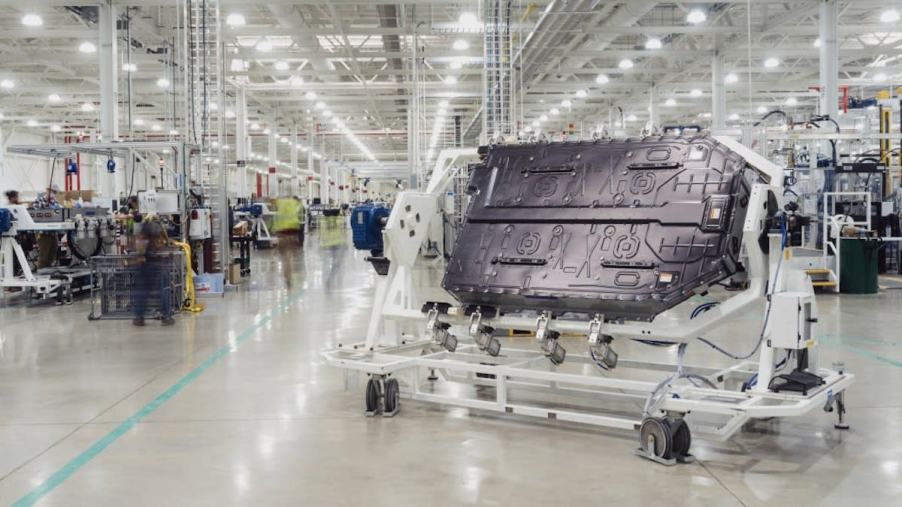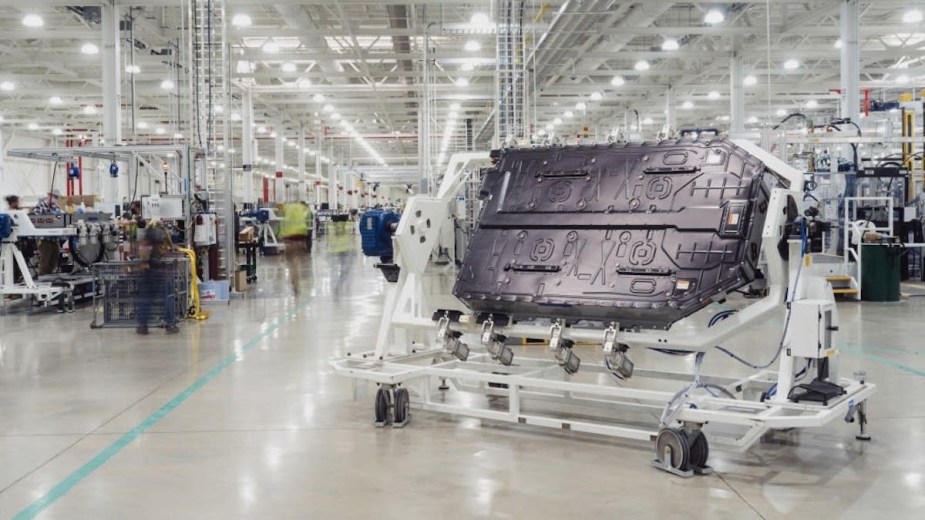
Fire Fighters Battled Battery Fire for Hours in Rivian Plant
EV battery fires are the newest threat to the general public adopting all-electric cars. Rivian – the poster child for new EV startups – has had a tough run lately. Following the controversial price hike of the Rivian R1T, a battery fire broke out in the Illinois Rivian plant. The blaze required hours of work from the local fire department.

What caused the Rivian plant fire?
The town of Normal posted the news on its official government website, but the story came to us via Autoblog. A single faulty battery pack caused the fire. The plant staff and local firefighters managed to keep the blaze contained to the single battery.
Autoblog reports that the battery was already in thermal runaway when firefighters arrived. Because of this, the firefighters had to continuously apply cold water to the battery long after the initial flames were extinguished to keep it cool and prevent it from catching fire again.
Due to the nature of battery fires, the blaze, while not very large, required a lot of time and attention to extinguish safely. After the battery melted down, fire crews had to ventilate the building to make it safe for workers to return.
Is there a problem with Rivian batteries?

Automotive News received a statement from Rivian claiming that they knew the battery was faulty before it ever caught fire. Rivian didn’t mention how they determined it was faulty or why, but this insinuates that the fire maybe wasn’t a total surprise.
A Rivian spokesperson said, “No injuries occurred during the event, and production in the area has restarted,” the spokesperson told AN. “Every one of our batteries undergoes a rigorous and comprehensive testing regime before being certified for installation in our vehicles.”
Why do battery fires burn for so long?

EV batteries tend to use Lithium-Ion construction, which can be unstable. We know that a battery’s most basic function is to store energy. And we know that energy most commonly shows itself as heat. It stands to reason that these heat-producing energy blocks could lead to a fire.
The battery in the Tesla Model S, for example, contains over 7,000 individual cells. A flammable electrolyte carries massive amounts of charged ions through the battery, and if the battery is damaged, an internal short-circuit could unleash a huge amount of stored energy. One spark can cause a damaged or otherwise faulty battery to ignite.
The real danger comes from the stored energy within the battery, which acts as fuel. This fuel can continuously reignite as thermal runaway takes effect. For this reason, it took the firefighters nearly five hours to fully extinguish the battery.
Are EVs safe?
As we continue to move forward with various technological advancements in the automotive world, we have to understand the risks. Electric cars require an enormous amount of stored energy. Like a fuel tank full of gasoline is inherently dangerous, so too are these immensely powerful batteries.
However, nearly every major carmaker in the world is individually spending many billions of dollars on research and development to figure out how this stuff works and how to make it better. EVs are making tremendous strides, but the tech is still young, and growing pains should be expected.



